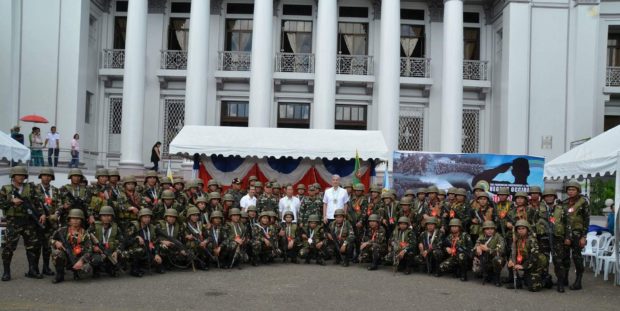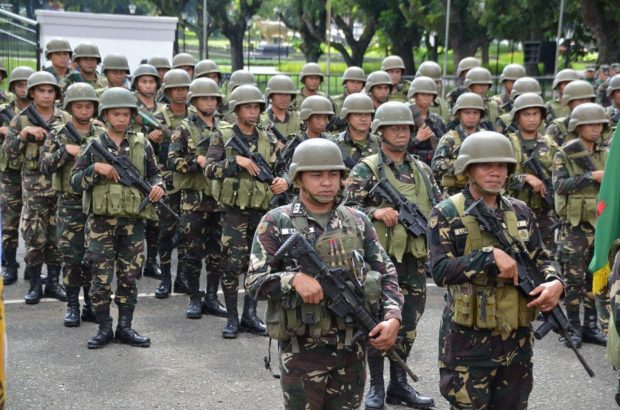What is a soldier’s life in Marawi battle zone like?

The Army’s 31st division reconnaissance company being honored at the Negros Occidental Capitol in Bacolod City today. Andy Alvarez photos
BACOLOD CITY – The life of soldiers while fighting the terror group Maute-Islamic State in Marawi City was not easy.
There were many ways to die while in Marawi – from bullets fired by the terrorists to being bitten by dengue-carrying mosquitoes.
“But we have done our task and job to liberate the Maranaw people,” said Technical Sergeant Jose Lumayno of Sipalay City, Negros Occidental.
Lumayno was one of the 81 soldiers belonging to the Army’s 31st Division Reconnaissance Company who were given heroes’ welcome at the provincial capitol on Friday morning following their stint in Marawi City.
The five soldiers from Negros Occidental who died during the Marawi gunbattle were also honored during the ceremony on the Provincial Capitol grounds in Bacolod City.
Article continues after this advertisementThey were Staff Sgt. Joseph Villanueva, Private First Class (Pfc.) Ramonito Occena III, Corporal Ariel Arquio, Corporal Arjelito Baroa and Pfc. Nilbert Dedales.
Article continues after this advertisementThe 81 soldiers were tasked with delivering sandbags to the main battle area and to provide tanks assaulting the Maute forces ground support.
Lumayno admitted that their four-month stint in Marawi had been difficult.
In the first few weeks, he said they could not sleep at night because the Maute fighters could attack them anytime. They could not also sleep when it rained since the buildings where they were sleeping didn’t have roofs.
They drank water from the rain and did not have baths for weeks, said Lumayno.
He added soldiers had to use garbage bins to catch rainwater and used solar panel to charge their cellular phones.
Their meals consisted mostly of canned goods since there was no fresh food because there was no public market.
“For the past 4 months and 16 days in Marawi City, all the pain, hardship and sacrifice we encountered is part and partial of our job,” Lumayno said.
